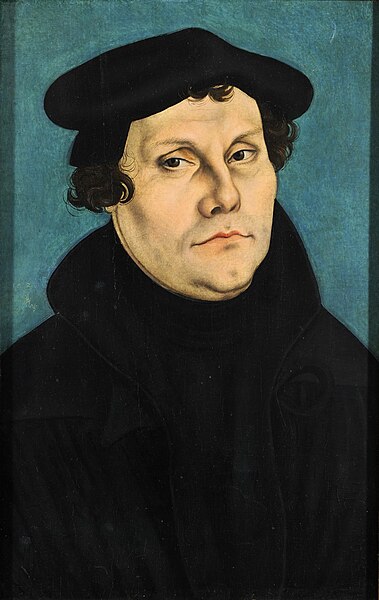Pietism, also known as Pietistic Lutheranism, is a movement within Lutheranism that combines its emphasis on biblical doctrine with an emphasis on individual piety and living a holy Christian life.
The "Five Brothers of Württemberg Pietism": Johannes Schnaitmann (1767–1847), Anton Egeler (1770–1850), Johann Martin Schäffer (1763–1851), Immanuel Gottlieb Kolb (1784–1859) and Johann Michael Hahn (1758–1819).
Pietistic Lutheran frugality, humility, restraint, sense of duty and order have been strong cultural and religious influences in Scandinavia.
Philipp Spener (1635–1705), the "Father of Pietism", is considered the founder of the movement.
Haugean Pietist Conventicle
Lutheranism is a major branch of Protestantism, identifying primarily with the theology of Martin Luther, the 16th-century German monk and reformer whose efforts to reform the theology and practices of the Catholic Church launched the Protestant Reformation.
Martin Luther, a 1529 portrait of Martin Luther by Lucas Cranach the Elder
The title page of the Swedish Gustav Vasa Bible, translated by brothers Olaus Petri and Laurentius Petri and Laurentius Andreae
A Hundskirche replica
The University of Jena in Germany, the center of Gnesio-Lutheran activity leading up to the Formula of Concord, and a center of Lutheran orthodoxy








